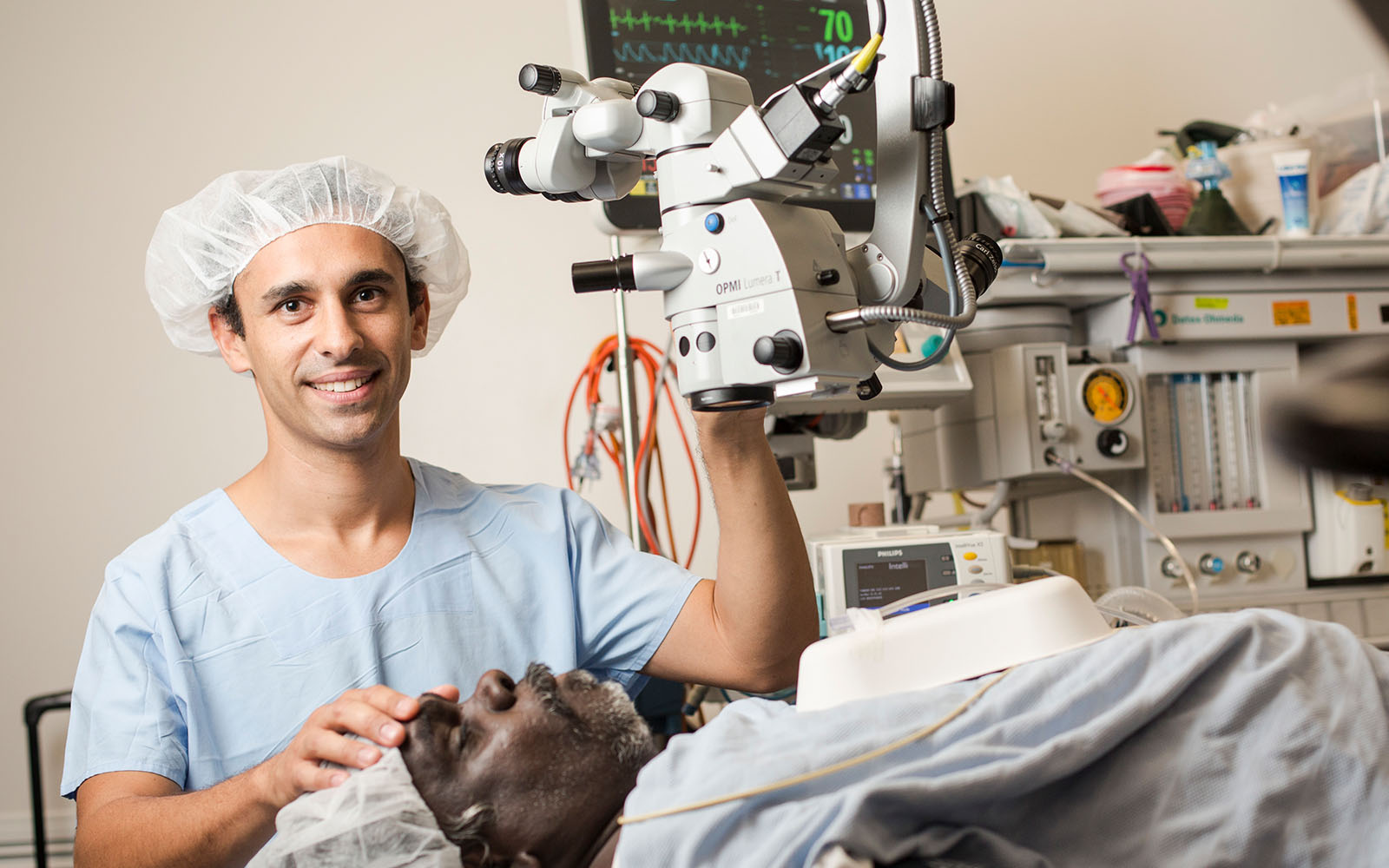Kris Rallah-Baker breaks down barriers in eye health
When Fred Hollows passed away, Yuggera and Biri-Gubba-Juru/Yuggera man Kris Rallah-Baker was just 13 years old, yet he was well on his way to becoming
Australia’s first Indigenous ophthalmologist.
He’d been inspired from the time he was a young boy to join the medical profession, as his nanna told him how her mother had passed away when she was just 12 as she had refused to see the white doctors for medical assistance when she had pneumonia.
“She was a member of the Stolen Generation. Her story was told frequently in our family and I credit her with the inspiration for me to become a medical doctor.”
- Dr. Kris Rallah-Baker
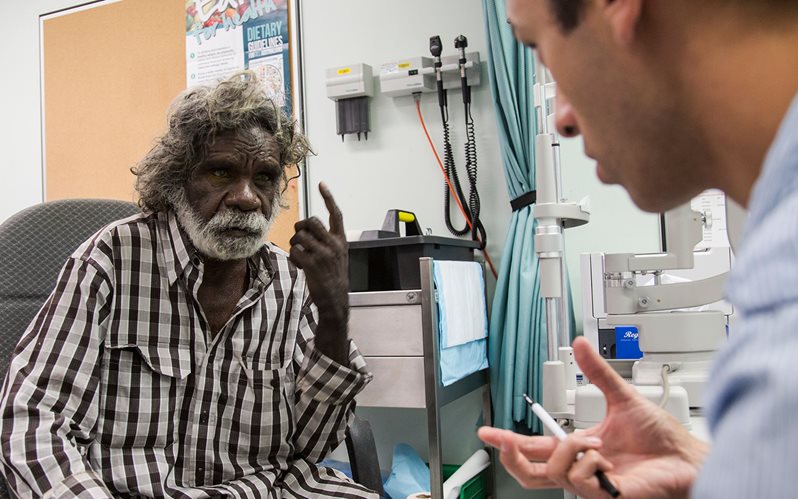
Health inequality between Aboriginal and Torres Strait Islanders and other Australians is what stirred Fred to end
avoidable blindness for all Australians, and reach out to poor and marginalised communities across the globe.
Fred Hollows was shocked to see the painful and ultimately blinding eye disease
trachoma still impacting
Australia’s Indigenous communities in the 1970’s and his work, continued by The Fred Hollows Foundation, is credited with the great reduction in cases of trachoma in Australia today.
However there is still much work to be done, and Dr Rallah-Baker is rolling up his sleeves to do all that he can.
Indigenous Australians are still three times more likely to be blind than other Australians, yet 94 per cent of their vision loss is preventable or treatable.
Cataract is the leading cause of blindness among Indigenous Australians, followed by
diabetic retinopathy; both preventable and potentially reversible conditions that have significant impacts on Aboriginal and Torres Strait Islander people. Vision loss causes 11 per cent of the health gap between Aboriginal and Torres Strait Islanders and non-Indigenous Australians, ahead of alcoholism and stroke, and as Australia’s first Indigenous ophthalmologist Dr Rallah-Baker will have a pivotal role in closing this gap.
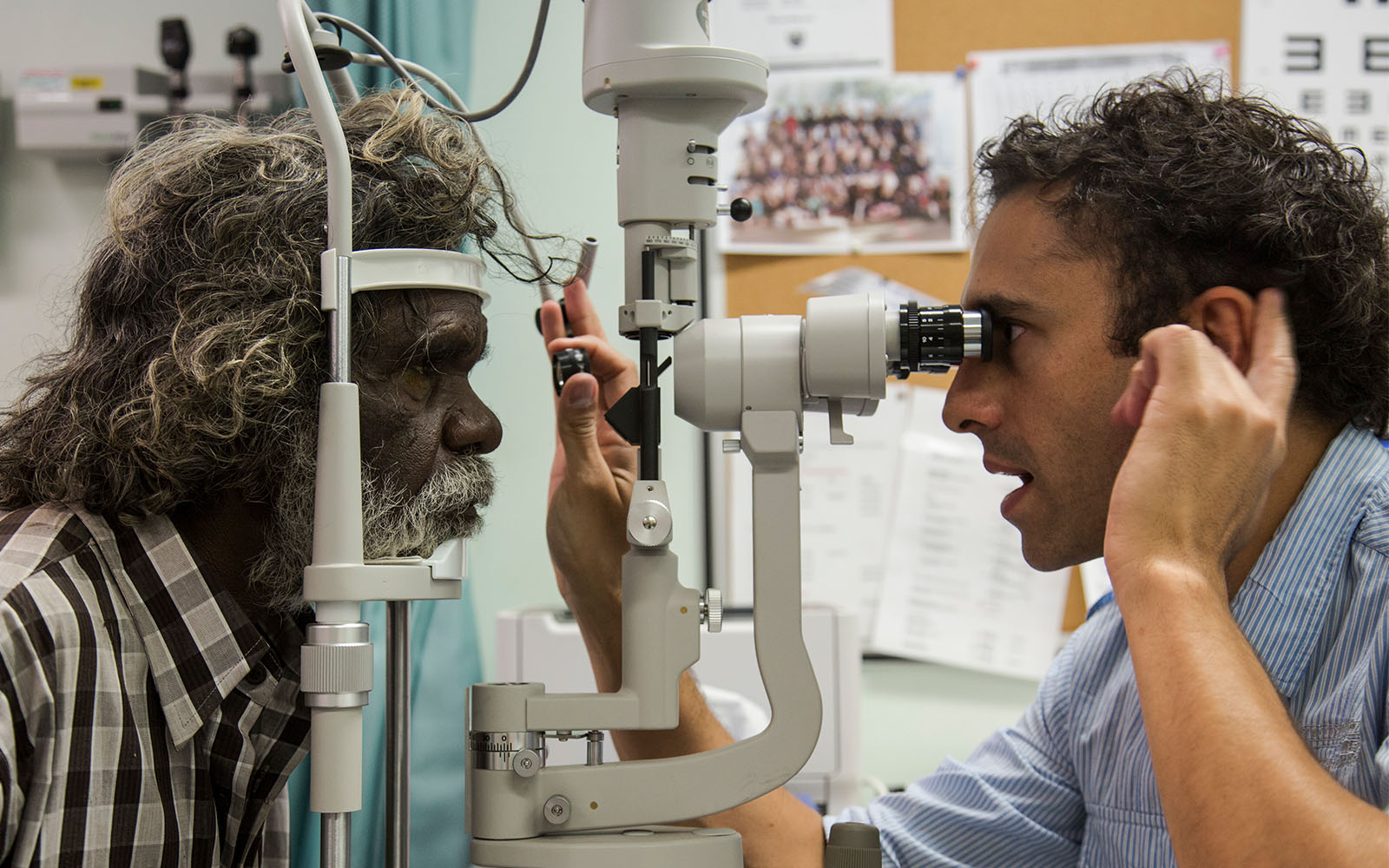
Dr Rallah-Baker’s journey has not always been an easy one however. At school he was told he would not get into medicine, despite being a straight ‘A’ student. But he was determined to follow his path, and showed the same passion and determination Fred did to pursue his
mission.
At 18, while in his first year at Medical School, Kris was one of the founding members of the
Australian Indigenous Doctors Association (AIDA), an Indigenous medical association for Aboriginal and Torres Strait Islander medical students and graduates.
Cultural support and safety was critical to his success during his training, as was the support of mentors who had faith in his ability to succeed and could support him through difficult times. Twenty years on and Dr Rallah-Baker is now a director of AIDA and will be an inspiration and source of support for others.
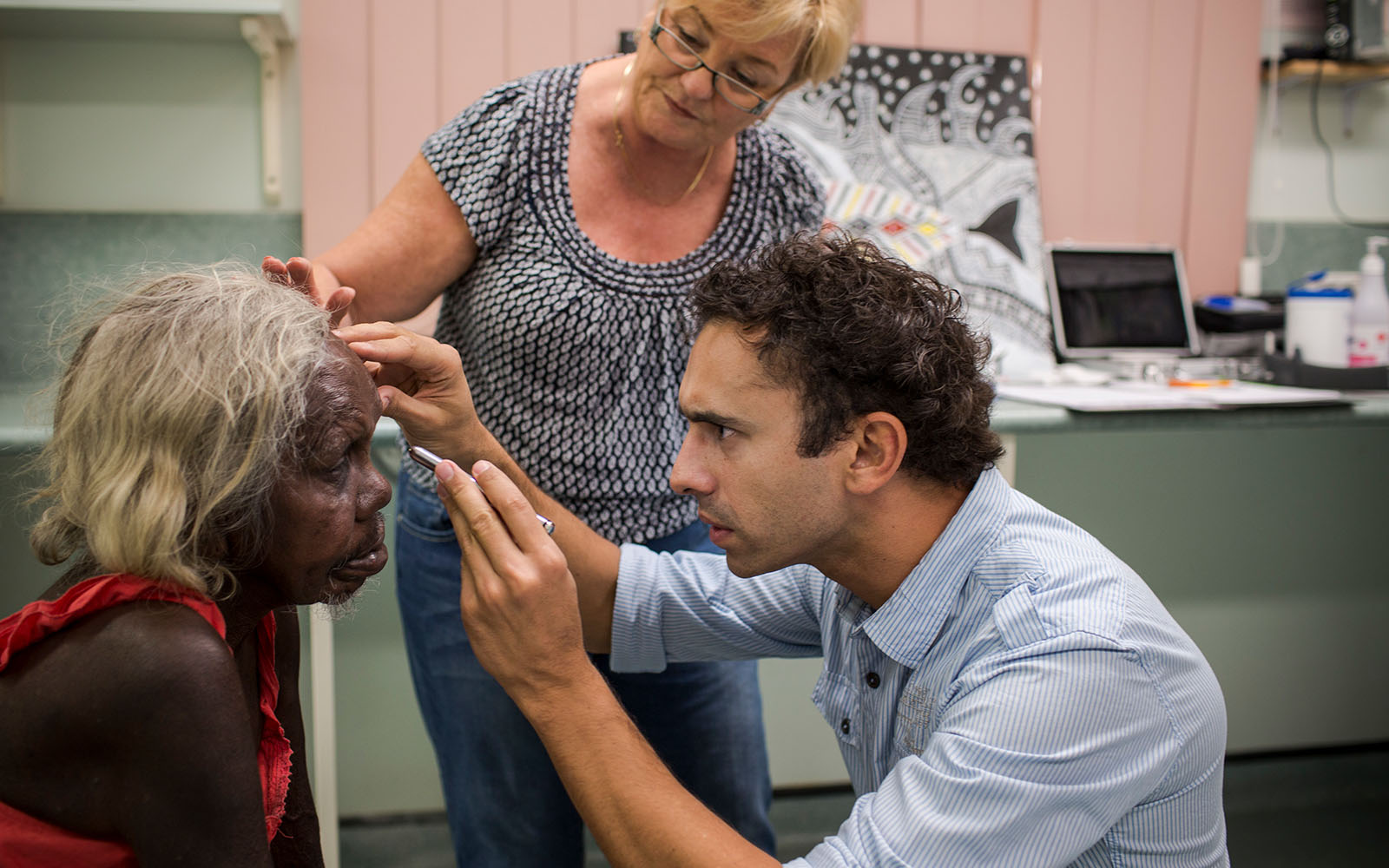
During his training at the University of Queensland, Dr Rallah-Baker also had the opportunity to work with
The Fred Hollows Foundation in Darwin and go into remote communities to provide eye healthcare to Aboriginal communities throughout the Northern Territory.
The experience made a significant impact on the young doctor who now plans to continue doing community outreach work throughout his career.
After passing his final exams last year, Kris commenced a fellowship with The Fred Hollows Foundation to spend three months working in Fiji and work in Alice Springs with
Dr Tim Henderson, the only ophthalmologist for more than 50,000 people in the Central Australia and Barkly region.
Aboriginal and Torres Strait Islander communities across this vast region are as culturally diverse as the different nationalities of Europe, and many are wary of mainstream healthcare services.
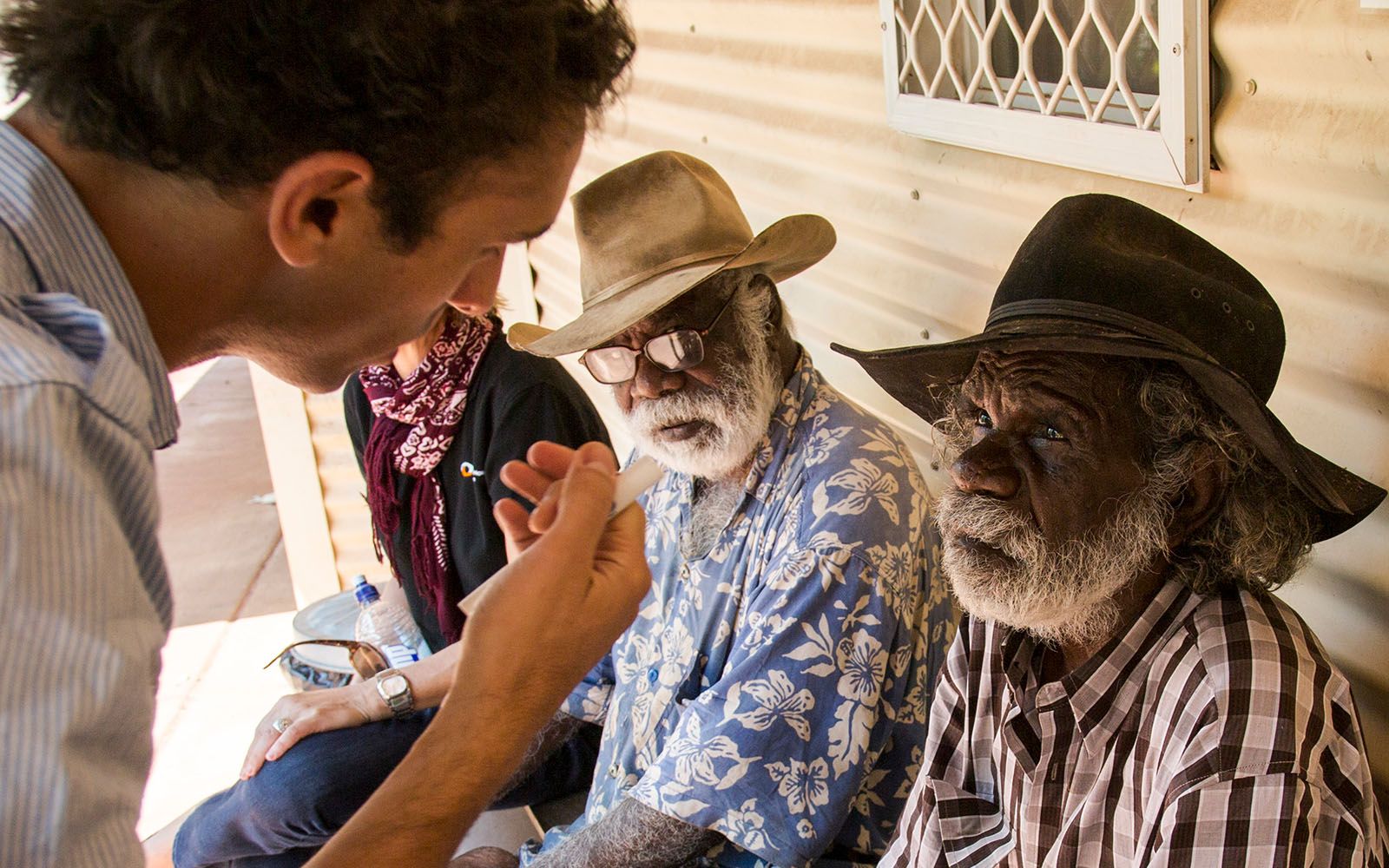
For Aboriginal people attending a western medical clinic can cause distress and shame as they may be singled out or forced to act in a way that conflicts with their social or spiritual obligations. For example in an eye clinic, people are asked to break the etiquette of avoiding eye contact as a mark of respect. And many Aboriginal patients or their relatives have experienced negative outcomes and attitudes in hospitals and may fear the place associated with the spirits of the dead.
As Australia’s first Aboriginal ophthalmologist, Dr Rallah-Baker will help to break down some of the barriers faced by Aboriginal and Torres Strait Islanders seeking eye health care as he has a unique ability to put his patients at ease.
"There is an element of difference when you have an Aboriginal face on the other side of the table.”
- Kris told the Sydney Morning Herald in 2014
